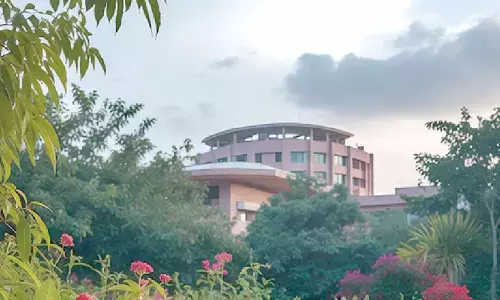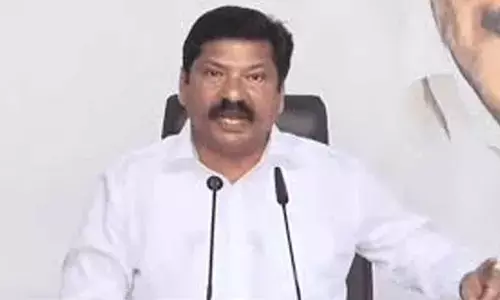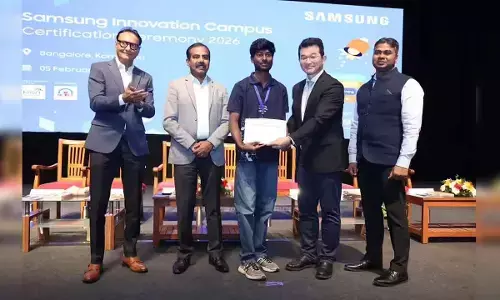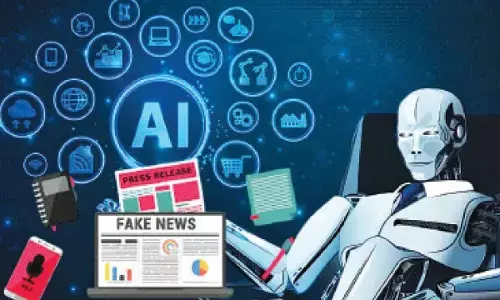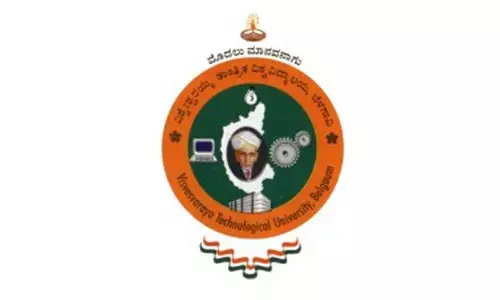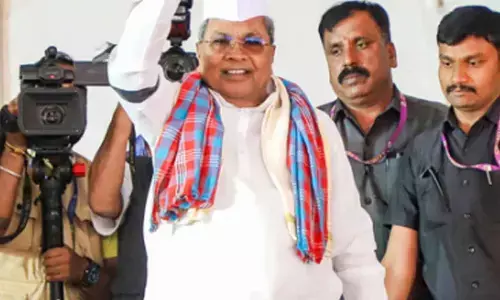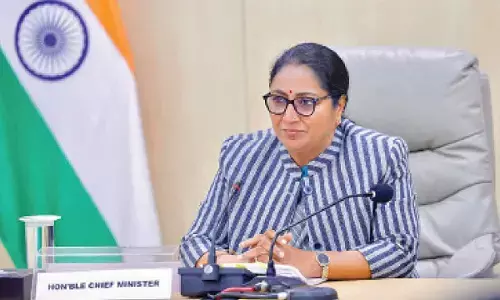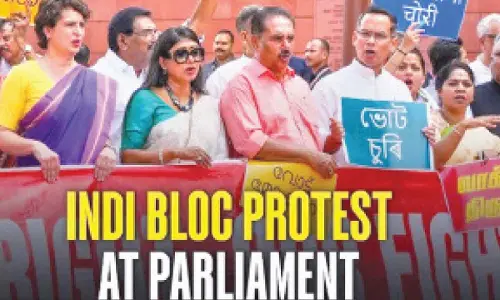"I urge aspiring inventors to think deeply about the problem at hand," says JDA award winner 2021
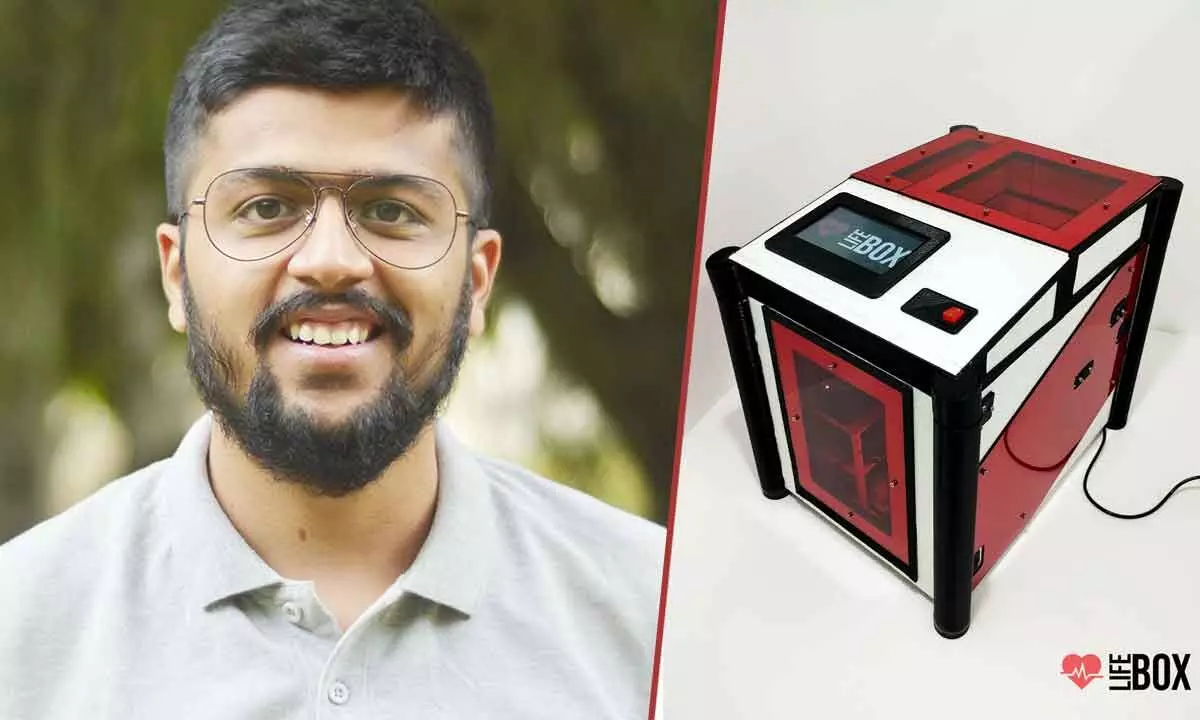
Mr Deval Karia, UTSAAH Lab | CPDM | IISc. Bengaluru
- The Hans India reached out to the James Dyson Award winner Deval Karia, the inventor of 'LifeBox', a vision to explore drones as a transport channel for organs.
- The James Dyson Award was launched in 2017 in India.
The James Dyson Awardis among the most prestigious awards for any engineering student run by Dyson's charity. It was launched in 2017 in India; the James Dyson Award has challenged entrepreneurial undergraduates and recent engineering and design graduates to 'Design something that solves a problem'. The Hans India reached out to Deval Karia, the victorious inventor of 'LifeBox', with a vision to explore drones as a transport channel for organs. He shared about his journey of winning the James Dyson Award.
Mr Deval Karia, UTSAAH Lab | CPDM | IISc. Bengaluru
On his invention, 'LifeBox', Deval Karia says, "The project has its genesis in a course run by Prof. B. Gurumoorthy and Prof. A. Ghosal at CPDM, with a vision to explore drones as a transport channel for organs. Through extensive interactions with stakeholders and literature studies, we quickly realized that without active preservation techniques, drones would not do much to improve the rate of heart transplants in India. This led to a shift in focus: A portable system that can extend the out-of-body viable time of the heart. The idea of the novel cooling method (the device consists of two sub-systems: perfusion and cooling) was inspired by the inner workings of a simple oven."
He shares about the 'LifeBox' invention process, "While we didn't have a single eureka moment for 'LifeBox', the overall process of arriving at the 'LifeBox' invention was fascinating. My friend (Rohit S. Nambiar) and I went through multiple sleepless nights of testing and iteration during the course to get our proof of concept working. This was part of our coursework at CPDM, and throughout, we were encouraged and mentored by Prof. B. Gurumoorthy and Prof. A. Ghosal to persevere and realise our idea."
Deval Karia added, "We were elated to win the national award for James Dyson 2021 was not something we had expected. However, we are grateful to the James Dyson foundation team and the judges for placing their trust in us and recognizing our work on 'LifeBox'. We hope to do justice to this recognition."
"The potential to impact patients and their lives was an important driving factor for our team. We look forward to the day when we will be able to undertake an actual human heart transplant," he further adds.
While explaining the importance of the invention, he says, "The impact of such a system, once adopted, would be multi-fold. First, the increase in preservation time would allow donors' hearts to be accessed from several tier two cities (without airports) in India. Second, the Hearts transported in time would have a reduced probability of wastage since they will be perfused during transport, while the availability of critical data for surgeons can improve the success rate of transplants. Third, the extended preservation time would negate the need for a green corridor, eliminating its associated problems. Lastly, compared to aerial transport in chartered/commercial aeroplanes, this would significantly reduce costs for the recipient family."
Deval Karia says, 'LifeBox' is very relevant for ordinary Indian citizens. Heart transplants are an established treatment for end-stage heart failure. However, despite a staggering number of patients in need, a minuscule number can avail themselves of one.
Patients, once deemed eligible, are put on a waiting list with an average waiting time of one year. This duration is highly stressful for patients – financially, physically, and mentally. Factors such as debilitating illness, loss of employment, anxiety, isolation, and clinical costs also severely affect family members. Any method that reduces this waiting time will significantly relieve all stakeholders within the system. 'LifeBox' attempts to do so."
About his future plans, he says, "At present, we plan to continue improving LifeBox. The project is currently led by Prof. B. Gurumoorthy, Prof. A. Ghosal, Dr Manish Arora, Deval Karia at CPDM, and Dr K. R. Balakrishnan at MGM Hospital. We recently received funding from BIRAC to continue our work. A clinical investigation of the device is planned, and necessary approvals are being sought for this. Meanwhile, the novel cooling system is also being evaluated for storing other biological samples."
His advice for upcoming inventors is, "I would urge budding inventors to think deeply about the problem they are attempting to solve. It is important to remember that the problem must be relevant to Indian society and help stakeholders in India. Also, entries for the James Dyson Award are open. If you have an idea which solves a problem, submit your entries for the award.
It is definitely a great stepping stone for your invention journey, concludes Deval Karia.








